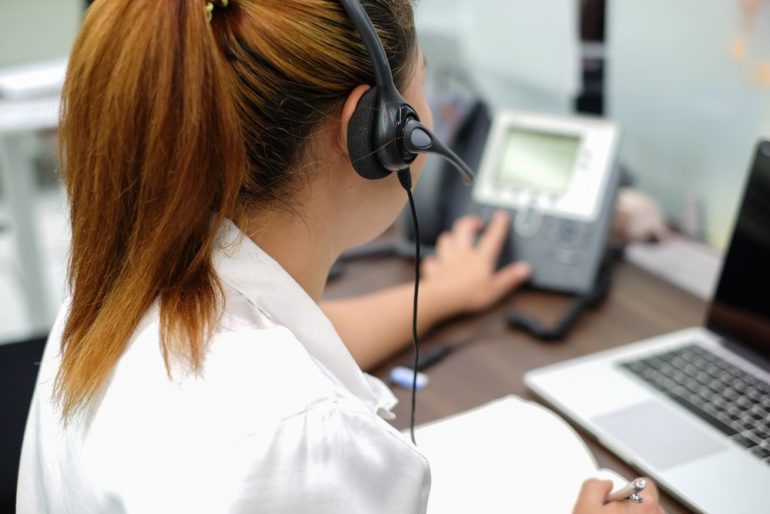
If you’ve been the victim of the 877-311-5134 scam, you’re not alone. This scam, also known as the “Can You Hear Me?” scam, has been around for a few years and continues to dupe people out of their hard-earned money. The scam works like this: you’ll receive a call from a number with a 877 area code and the caller will say something like, “Can you hear me?” or “Is this [your name]?” If you respond with a yes, the scammer will then record your response and use it to sign you up for unwanted products or services. In some cases, the scammer will even threaten to sue you if you don’t pay up.If you’ve been the victim of this scam, the first thing you should do is report it to the Federal Trade Commission. You can also file a complaint with the Better Business Bureau. Finally, you should contact your credit card company or bank and let them know that you’ve been the victim of a scam. They may be able to help you get your money back.
1. How the 8773115134 Scam Works
You receive a call from a number you don’t recognize. The caller says they’re from the IRS and that you owe back taxes. They threaten to arrest you if you don’t pay immediately. You’re terrified and agree to pay, not knowing what else to do.
You’re not alone. This scam, in which callers pose as IRS representatives and demand payment for nonexistent taxes,
So how does the scam work.
To make the scam more believable, the caller may say that they’re from the “IRS Criminal Investigation Division” or some other official-sounding department. They may also claim to have some of your personal information, like your Social Security number or bank account details.
If you express doubt or ask too many questions, the caller may become hostile and insist that you pay immediately. They may also try to keep you on the phone by saying that they need to verify your identity or collect additional information.
The caller will then tell you how to make a payment, which is usually through a prepaid debit card or wire transfer. They may also ask for your credit card number. Once you make a payment, they will often call back and demand more money.
If you receive a call like this, just hang up. The IRS will never call you out of the blue and demand immediate payment, nor will they threaten to arrest you. They will also never ask for payment through a wire transfer or prepaid debit card.
If you think you may owe taxes, you can call the IRS directly at 1-800-829-1040 to speak to a customer service representative.
2. Signs You May Have Fallen for the 8773115134 Scam
You may have received a call from 877-311-5134, or a similar number, claiming to be from the IRS. The caller may say that you owe taxes and must pay immediately to avoid being arrested or having your wages garnished. They may threaten to have your utilities turned off or your driver’s license revoked. Or, they may say you are entitled to a large refund and ask you to provide personal information to get it.
These are all signs that you may have fallen for the 877-311-5134 scam. And, they will never ask for your credit or debit card numbers over the phone.
If you think you may have fallen for the 877-311-5134 scam, hang up and call the IRS directly at 1-800-829-1040 to speak with a real IRS employee. You may also want to file a complaint with the Federal Trade Commission at ftc.gov/complaint.
3. What to Do If You Think You’ve Fallen for the 8773115134 Scam
This is a scam, and you should not fall for it,
There are a few things you can do if you think you’ve fallen for the 877-311-5134 scam. First, you should hang up the phone. Do not give these scammers any of your personal information, and do not give them any money. Second, you should report the call to the Federal Trade Commission. This will help them track down these scammers and put a stop to their shenanigans. Finally, you should tell your friends and family about the scam so that they can be on the lookout for it.
If you think you’ve been a victim of this scam, you should also contact your local police department. They may be able to help you get your money back or track down the scammers. In the meantime, be on the lookout for any other suspicious calls or emails, and don’t hesitate to report them to the authorities.
4. How to Prevent Falling for a Scam in the Future
1. Be skeptical of unsolicited offers.
If someone reaches out to you out of the blue with an offer that sounds too good to be true, it probably is. Be especially skeptical of offers that require you to pay upfront or provide personal information.
2. Do your research.
Before doing business with anyone, take the time to research them online. See if there are any complaints about them. Also, make sure they have a legitimate website and social media presence.
3. Don’t rush into decisions.
Scammers often try to pressure their victims into making hasty decisions. If someone is pressuring you to make a decision before you’re ready, that’s a red flag.
4. Get everything in writing.
Before agreeing to anything, make sure you get all the details in writing. This way, you’ll have a record of what was agreed to and you can refer back to it if there’s ever any confusion.
The important thing is to learn from your experience and be more cautious in the future.






